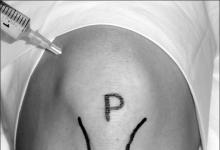Calcium Supplements and Cardiovascular Risk Save

Several population based studies, including a recent report in Seminars in Arthritis & Rheumatism (http://buff.ly/2pUxT9M), have concluded that supplemental calcium, while being beneficial to bone health, may increase cardiovascular (CV) risks. I've posed this issue and others to our leading expert on bone health, Dr. Nancy Lane who is the Director of the Center for Musculoskeletal Health in the University of California Davis system.
Dear Dr. Lane,
I have a few questions on the issue of supplemental calcium:
1. The medical literature says that routine calcium use is bad for the heart - what's the risk of heart problems vs. the detriment to the bones?
- Dr. Lane: There are a number of post-hoc analyses that have been done from placebo groups of randomized controlled trials, that do show vascular calcium deposits. However, these are not RCTs, and the studies chosen, have subjects that have co-morbidities that would increase the risk of vascular calcium, such as osteoporosis that is associated with CVD. These studies serve a useful purpose, to educate the general public, that vitamins and minerals are good for all of us, and only at recommended doses - not superphysiologic levels. Usually, calcium and vitamin D intakes at recommended levels are not associated with complications or vascular calcium, provided they have generally good health.
2. Who should be most worried here?
- Dr. Lane: These reports should remind both physicians and patients that too much calcium and vitamin D may not be good, and that we should just educate patients that recommended daily allowance is adequate for maintaining good health.
3. Most patients underdose their calcium, thus who should be taking what? how much? and should it be Calcium with Vit D or with supplemental vitamin D tabs?
- Dr. Lane: All adults need calcium and vitamin D for bone health. The best way to get calcium and vitamin D is in foods like kale, broccholi and spinach and vitamin D enriched foods. However most Americans only get about 500mg of calcium a day so most individuals can benefit from a little bit of supplementation, just not too much.
- All need to be on 1000 mg per day, except that women need 1200 mg daily of calcium starting at age 51 yrs (or when breast feeding) and men do not need 1200 mg/day until over the age of 71 years.
- For vitamin D supplements the IOM Estimated Average Intake (EAR) of 400 IU (10 μg) and Recommended Dietary Allowance (RDA) of 600 IU (15 μg) for most individuals assumes little or no sunlight exposure due to the relatively little skin exposure in certain geographical regions, especially in winter.
4. Other suggestions?
- Dr. Lane: All physicians that take care of elderly patients should review both OTC and prescribed medications to be sure the calcium and vitamin D supplementation is adequate, recommended intakes and not too much.










If you are a health practitioner, you may Login/Register to comment.
Due to the nature of these comment forums, only health practitioners are allowed to comment at this time.